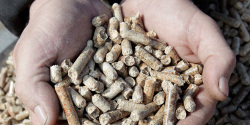

Government has now confirmed changes to the non-domestic Renewable Heat Incentive (RHI) following last year's industry consultation.
The Department of Energy & Climate Change (DECC) has set out the plans to ensure the scheme stays within budget.
Under a new budget management regime, trigger points will be set for most RHI technologies at 150% of DECC's expected levels of uptake. This means if uptake exceeds forecasts by 50% or more, the tariff can be reduced. The triggers for solar thermal and large Ground Source Heat Pumps are set differently, at a level 5% of the value of the total trigger, due to forecasted uptake. The first time a technology trigger is hit, tariffs can be reduced by 5%, with subsequent reductions increasing to 10% and 20% if uptake continues to rise beyond estimated levels. There will also be an overall trigger point for the non domestic scheme which, if hit, will result in a further tariff reduction of 5%. Subject to Parliamentary approval, DECC expects the new budget management regime will be in place by summer 2013.
DECC's new policy document also confirms that DECC is planning to consult in the Spring on changes to some of the RHI tariffs. Where tariffs increase as a result of the review, installations accredited from 21 January 2013 (the date the possibility of review was published) would benefit from that increase.
Sustainability requirements will be introduced for all existing and new installations using solid biomass. From April 2014, in order to be eligible for the RHI, biomass installations will be required to demonstrate that their biomass meets a greenhouse gas lifecycle emissions limit target and (from no later than April 2015) land criteria. DECC will work with industry through the course of 2013 to promote early reporting on a voluntary basis and to develop the "approved suppliers" approach.
Air quality requirements will also form part of the RHI for all new solid biomass installations, including CHP installations which burn biomass.
Metering requirements will be simplified to reflect feedback received from participants and to reduce burdens on industry.
The changes to both air quality and metering will be in place no later than the end of 2013 subject to parliamentary approval and will apply to all new installations only.
Energy and Climate Change Minister Greg Barker said: "I am fully committed to ensuring our Renewable Heat Incentive helps as many organisations as possible get on board with a range of exciting sources of renewable heat, and at the same time stays within its means. That’s why we are introducing a new, flexible way to control spending, alongside some further improvements. This is just the first step on our journey to safeguard longevity, provide certainty to industry and sustain growth under this scheme. We are also continuing to explore whether the tariffs we offer are set at the best levels to encourage further uptake, looking at how we can open up the scheme to new technologies, and considering the right approach to encourage householders to invest in renewable heat."
DECC has also said it intends for the RHI to remain open to new applicants until 2020.
The Micropower Council has welcomed the announcement. Chief executive Dave Sowden said: "Overall this is a step in the right direction for the RHI. We are pleased to see proposals for budget management and an early review of existing tariff levels, which industry views as vital to increasing deployment of renewable heating in the commercial sector. The delay to the introduction of Enhanced Preliminary Accreditation is disappointing, and industry will look to work with DECC to resolve this issue as soon as possible to ensure that large scale commercial installations have a place in the commercial renewable heating market. Industry hopes that today prefigures further announcements on the September 2012 RHI Consultations, which together with today’s proposals will give the clear policy framework and government support necessary to drive the uptake of renewable heat in the UK.
The Council added that DECC's decision to conduct an Early Review on tariff levels is also a sign that the department is listening to industry concerns, and that it hoped the announcement would be followed by others on the September 2012 consultations.
If you'd like to keep up-to-date with the latest developments in the heating and plumbing industry, why not subscribe to our weekly newsletters? Just click the button below and you can ensure all the latest industry news and new product information lands in your inbox every week.